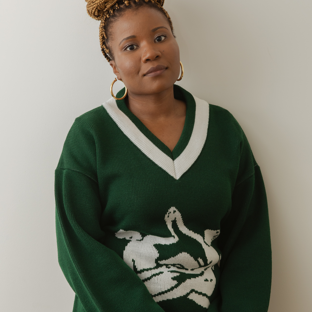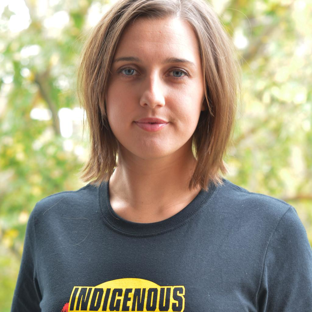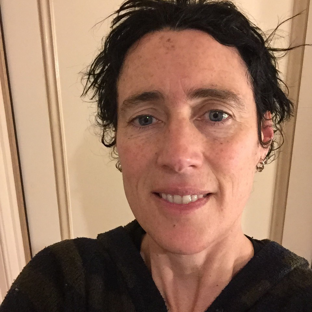For the next edition of our Not Racist, But series, we’ll discuss racial bias in the criminal justice system – from policing and legal aid to jury selection and sentencing.
Indigenous Australians account for just 2% of our country’s overall population and more than a quarter of our adult prison population. How, specifically, is this a function of explicit and structural racism across various facets of our enforcement and justice systems? And how are all non-white Australians – especially those from refugee backgrounds – disadvantaged when interacting with police and with the courts?
In this discussion, host Santilla Chingaipe and the panel will explore how racial discrimination and bias play out on a daily and inter-generational basis in Australia. We’ll look at racial data collection, too, and how sensationalist media reporting can skew perception, politics and policy.
Featuring

Santilla Chingaipe
Santilla Chingaipe is a filmmaker, historian and author, whose work explores settler colonialism, slavery, and postcolonial migration in Australia. Chingaipe’s critically acclaimed and award-winning documentary Our African ...
Fiona McLeod
Fiona McLeod SC is senior counsel practising at the Victorian Bar in public and commercial law.
She is the Chair of the Accountability Round Table and formerly chair of Transparency International and the Open Government Forum.
She is a Past President of the Law Council of Australia and the Australian Bar Association, was Chair of the Victorian Bar and President of Australian Women Lawyers. She has championed many social justice issues including leading the landmark Law Council Justice Project research.
Ms McLeod has been recognised with numerous awards for excellence and leadership, for her work in supporting diversity and equality, the advancement of women and her work in pro bono and human rights matters including human trafficking.
Ms McLeod was inducted onto the Victorian Honour Roll for Women in 2014 and is a recipient of numerous professional awards including the prestigious inaugural Commonwealth Government Anti-Slavery Australia Freedom Award for her work representing victims of human trafficking, raising awareness and contributing to law reform and policy on this issue.

Roxanne Moore
Roxanne Moore is a Noongar woman and human rights lawyer from Margaret River in Western Australia. She is the Executive Officer for the National Peak Body on Aboriginal and Torres Strait Islander Legal Services (NATSILS ).
Previously, Roxanne was an Indigenous Rights Campaigner with Amnesty International Australia and Principal Advisor to Change the Record Coalition. Roxanne has worked for the Aboriginal and Torres Strait Islander Social Justice Commissioner at the Australian Human Rights Commission, as Principal Associate to the Hon Chief Justice Wayne Martin AC QC; as a commercial litigator; and has international experience with UNHCR Jordan and New York University’s Global Justice Clinic. Roxanne studied law at the University of WA, and completed an LLM (International Legal Studies) at NYU, specialising in human rights law, as a 2013 Fulbright Western Australian Scholar.

Tamar Hopkins
Tamar Hopkins is the founding lawyer of FKCLC's Police Accountability Project and has been litigating, researching and writing in area of racial profiling and police accountability since 2006.
Tamar was a member of the legal team in number of high profile cases including Haile-Michael v Konstantindis & Ors (Federal Court, settled 2013), DPP v Kaba [2014] VSC 52 (18 December 2014), and the UN Human Rights Committee claim, Horvath v Australia [2014]. She has been the recipient of numerous awards and fellowships including the 2010 LIV Community Lawyer of the Year, Tim McCoy Awards in 2006 and 2014, VLF Fellowship 2008 and a Reichstein Fellowship in 2015. She was short-listed in 2013 for the Australia Human Rights Commission, Human Rights Award. She is currently doing a PhD at UNSW on racial profiling.
